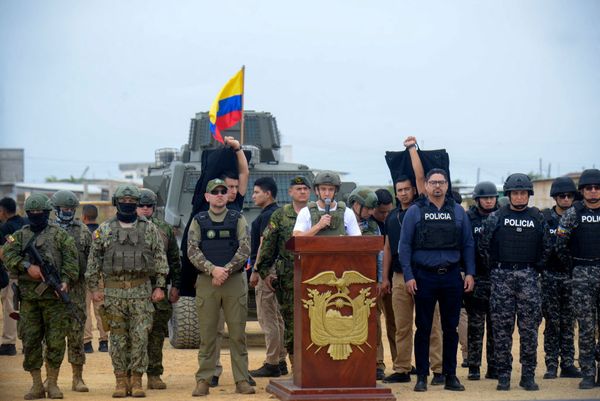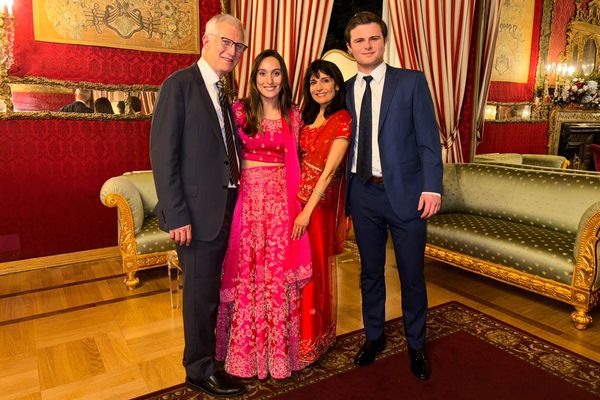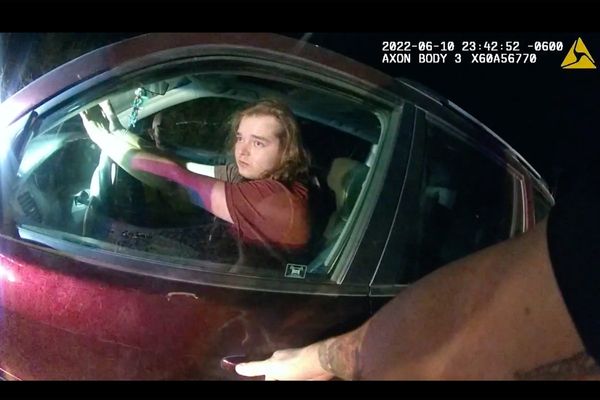
On Sunday, Germans will vote in an election that could shape both their country’s future and that of the European Union. While the hard-right AfD gains support, centrist and left-leaning parties struggle to tackle key issues such as immigration, inflation, and whether to back US President Donald Trump’s efforts to end the war in Ukraine.
More than 59 million Germans are eligible to vote.
At stake are the composition of parliament, the selection of a new Chancellor, the balance of political power, and Germany’s role - alongside France - as a cornerstone of the European Union’s stability.
The cabinet of Olaf Scholz, which was dissolved after a no-confidence vote on 7 November, was made up of a coalition between Scholz's Social Democratic Party (SPD), the Alliance 90/The Greens, and the Free Democratic Party (FDP,) and nicknamed the "traffic light coalition" after the colours representing the political affiliations.
In the end, the FDP couldn't agree with Scholz's fiscal policies, walked away, and new elections had to be organised within months.

An election with 29 parties
According to the website of Germany's election commissioner, 29 parties will take part in the elections on 23 February 2025 competing for some 733 seats.
A poll taken on 10 February by the Institute for New Social Answers (INSA), shows that the largest opposition party - the Christian Democratic Union (CDU) - led by Friedrich Merz, will be the likely winner, but with the lowest outcome ever - 30 percent of the vote, while Scholz's SPD may fall to only 15.5 percent.

Elesewhere, the hard-right Alternative für Deutschland (AfD) scored a solid 22 percent in the same poll, and the extreme left is hopelessly divided.
The German Marxist-Leninist Party (MLPD) that runs with the slogan “Make Socialism Great Again” competes against the Socialist Equality Party (SGP,) a Trotskyist splinter group born in West-Germany in 1971.

Meanwhile, hard-left Die Linke (the offspring of the former East-German Socialist Unity Party (SED) struggling to match former deputy party chief Sahra Wagenknecht, who formed her own political alliance.
Wagenknecht (estimated to win 5-7 percent) may even come in ahead of Die Linke (6 percent.), while the current SPD coalition partner The Greens are estimated to win 12 percent.

Apart from the left-right divide, small one-issue parties, including the Pirate Party and the Party for Rejuvenation Research (Partei für Verjungungforschung), which propagates eternal life, take part as well.
Breaking the "firewall"?
It is going to be hard for Merz, the likely winner, to form a coalition, according to Gero Neugebauer, a specialist on German party politics. This is particularly so, he said, after Merz's approach to the AfD.
On 29 January, citing the “deadly knife attacks in Magdeburg" by an immigrant, the CDU proposed a “massive sharpening of the German immigration policy."
The motion was supported by the AfD, marking the first time that a German party broke the “firewall” against the hard right.
The motion passed by 348 to 344 votes, and a second reading, on 31 January was narrowly rejected with 349 to 338 with five abstentions.
The CDU-AfD joint move led to massive demonstrations in Berlin and other cities. Merz was quick to distance himself from the temporary alliance, and claimed that the AfD is "destroying" the CDU.
However, Neugebauer told RFI: "Prospective coalition partners, such as the Greens or the Social Democrats, have said: 'Merz, you have destroyed the central rule of democratic political culture, which was a complete non-engagement with the AfD.'"
As a result, they may now be reluctant to form a coalition government, he added.
Meanwhile the AfD received a strong nod of approval from outside sources: the US and Hungary.
On 9 January, Elon Musk, in a 74-minute conversation with AfD leader Alice Weidel, expressed his support for the AfD, and one week later appeared on a large screen addressing a 4,500 strong AfD rally in Halle, in the former East Germany.
He hailed the right-wing party stating that "only AfD can save Germany. End of story.”

'Black sheep'
Later in January, Hungary’s leader Viktor Orban, in an interview with Swiss daily Neue Zürcher Zeitung invited AfD head Alice Weidel, saying that “we were the black sheep of Europe, now we are the future."

And last week, Germany's and Europe anti-immigrant, right-wing groups were encouraged by JD Vance, the US vice-president, who, speaking at the Munich Security Conference, reproached Germany, and other EU countries for "censoring" free speech and suppressing ideas, while approving of political visions that are promoted by the EU’s hard-right party on immigration.
German Defence Minister, Boris Pistorius, (SPD) immediately retorted that "this democracy was just called into question by the US vice president, not just the German democracy but that of Europe as a whole," and that Vance comparing "the condition of Europe with what prevails in some authoritarian regimes" is "not acceptable".
US criticism didn't stop there. A day earlier, during a Nato defence ministers' summit, US Secretary of Defence Pete Hegseth urged EU countries to increase their defence spending.
He urged member states to up their contribution to the alliance from two percent to five percent of their respective GDPs, indicating that the US would gradually withdraw its massive military support for the EU, and let Brussels (and London) pay for Ukraine's reconstruction.
After Brexit, some think that Germany is number three in the world, and that it should become number one in Europe. But this idea didn't come through.
REMARK by German political scientist Gero Neugebauer
Just days before the US officals came to Europe, Trump held a 90-minute phone call with Russian President Vladimir Putin.
Vance, speaking in Munich, remarked that there are chances for a "reasonable peace settlement" now.
The Putin-Trump phonecall resulted in the first high level meeting between Moscow abnd Washington in three years, with US Secretary of State Marco Rubio meeting Russian Foreign Minister Sergei Lavrov in Ryiadh on 19 February. Putin said that the US-Russia talks were 'first step' in restoring relations.
Yalta again?
But Washington's actions inspired Ralf Fücks, a former MP for the Green party and now head of the Berlin-based think tank Zentrum Liberale Moderne, to write an editorial for weekly Der Spiegel, about the current state of play.
He expressed his fear that the fate of Ukraine, and the EU as a whole, is being decided by the US and Russia, over the heads of European leaders - just as happened in Yalta, when "Europe was divided between the great powers,"
He also urged Europe to form a close security alliance with Ukraine and to significantly strengthen its own defence capabilities.
Earlier, Pistorius also emphasised Germany’s and Europe’s responsibility to increase military spending in order to support Kyiv in resisting the Russian invasion.
Ironically, Trump’s shift in stance has highlighted that the German Greens and the SPD are now the only parties advocating substantial military aid for Ukraine. How this will resonate with voters on Sunday remains to be seen.







